Suchergebnisse für "Factsheet: Energietechnologien gestalten, die für alle sinnvoll und nutzbar sind"
Timber Passive House at Mühlweg, 1210 Vienna
Low-rise housing with 70 units (200 residents) in solid wood plate construction designed to meet European passive building standards. Strategies for highly ecological and sustainable building within the economic constraints of social housing, Mühlweg, 1210 Vienna. Industrial pre-fabrication, ...
INNERGY - Real laboratory in the central Inn-valley for climate-neutral semi-urban areas
Sustainable energy supply solutions for existing quarters and industry had been surveyed holistically and cross-sectorally in a small-structured area, consequently pilot projects had been elaborated with the aim to build up a climate-neutral region.
Refurbishment of an existing villa of the "Gründerzeit" to passive house standard with passive and active solar use
The project shows in an exemplary way how buildings of the time of "Gründerzeit" could be maintained and could offer a better environmental balance including the view of the village and the traffic than a new building. As an example a villa has been converted into a multi-family house within a larger housing project.
Energy Efficient Smart Metering Infrastructure
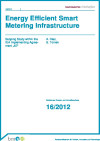
Scoping Study within the IEA Implementing Agreement "4E"
Schriftenreihe
16/2012
A. Diaz, S. Tomek
Herausgeber: BMVIT
Englisch, 87 Seiten
Downloads zur Publikation
Future-Oriented Products And Services
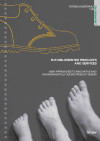
New Approaches to innovative and environmentally sound produc design
Forschungsforum
1/1998
Herausgeber: BMVIT
Englisch, 6 Seiten
Downloads zur Publikation
Energy Workshop Northern Waldviertel

A local " integrated" energy program - successful implementation through research cooperation
Forschungsforum
1/1996
Herausgeber: BMVIT
Englisch, 6 Seiten
Demand Response Potential of the Austrian industrial and commerce sector
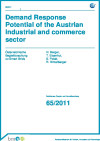
Österreichische Begleitforschung zu Smart Grids
Schriftenreihe
65 /2011
H. Berger, T. Eisenhut, S. Polak, R. Hinterberger
Herausgeber: BMVIT
Deutsch, 291 Seiten
Downloads zur Publikation
Knowledge based determination of plant species
Pollen for medical applications can be sorted by special machines. An integrated database and a spectrometric calibration allow a precise separation of the species with an identification of the plant species.
CPC-lightweight construction collector
On the basis of our relieable CPC-collector SOLARFOCUS S1 we develop the CPC-lightweight construction collector to get more material efficiency and maximum output of solar hightemperature energy.
oh 456 - Plus Energy Office Building oh456
The "oh456 Plus Energy Office Building" with its adjoining small hydro-electric power plant shall serve as a prototype for testing innovative technologies and also provide the companies residing in the building integral home surroundings comprising common break and leisure facilities. A wide public will have access to the building which will be a location for the most diverse events, exhibitions and lectures on climate protection as well as being a joint promotional platform for sustainable construction.
Pilot machine for the production of lightweight sandwich-elements in batch mode consisting only of one polymer component.
Further development of a new technology for the production of lightweight sandwich-elements consisting only of one polymer component (for example polypropylene). This pilot machine is the basis to get all the necessary figures and experience for the development of the production machine and to produce the first parts of the car bodies for the zero series.
Demonstration project LifeCycle Tower - batch-produced energy efficient timber/hybrid high-rise building system
The energy efficient building concept shall be tested with regard to its functional efficiency and real usage conditions. The demonstration project is based upon the results of previous research activities and shall be presented to a wider public. It shall illustrate the advantages of a batch-produced timber/hybrid high-rise building system which offers high quality of energy and resource efficiency.
Plus energy office building - Subproject 3: Austria's biggest plus energy office building
In course of the refurbishment of the Vienna University of Technology (Univercity 2015) Austria´s biggest plus energy office building is going to be built. This project intends to demonstrate not only the technical but furthermore the economical feasibility of plus energy office buildings. Within this building the plus energy concept is fulfilled by optimizing the power consumption of the whole building and the installation of Austria´s largest facade integrated photovoltaic plant.
M-DAB2: Material intensity of inner development - resource assessment and localization of urban development potentials
For the first time, the material intensity of inner development (in terms of material quantities) for different design variants was considered in the evaluation of inner development potentials. A set of methods for the holistic evaluation of potential areas and different development variants and scenarios for resource-saving inner development was created.
The Use of wind energy in skiing regions - Evaluation of the consume of electricity and dissemination of the results of the analysis
Main goals of the project are the analysis of the location Salzstiegl concerning the coverage of their own electricity needs with an already existent windmill as well as a following dissemination of the outcome of the analysis in form of a workshop for all ski lift carriers of Austria.
OEKOPLUS-KOMPLEX - Analysis of the technical, economical and ecological preconditions for the establishment and utilisation of plus-energy-buildings and building assemblies
The evolution of the low energy house and the passive house standards to the plus energy standard results in a clear reduction of green house gas emissions as well as the primary energy input. The goal of the project was the determination of the technical, ecological and economic basic conditions for the construction and the use of "plus-energy-buildings" in order to finally realize them.
DDM Feldkirchen
Demonstration of digitalization measures in heating networks using the example of Feldkirchen district heating network
Carless Tourism In Austria

The valleybus project Lungau, Murau, Nockgebiet - an innovative pilot scheme
Forschungsforum
3/1995
Herausgeber: BMVIT
Englisch, 6 Seiten
Transparent Thermal Insulation
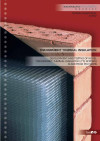
Development and Testing of novel Transparent Thermal Insulatio (TTI) Systems made from Polymers
Forschungsforum
2/2002
Herausgeber: BMVIT
Englisch, 6 Seiten
Downloads zur Publikation
The Sahel Project
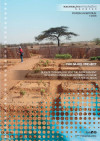
Silicate technology for the improvement of water uptake and nutrient storage in marginal soils
Forschungsforum
1/2006
Herausgeber: BMVIT
Englisch, 6 Seiten
